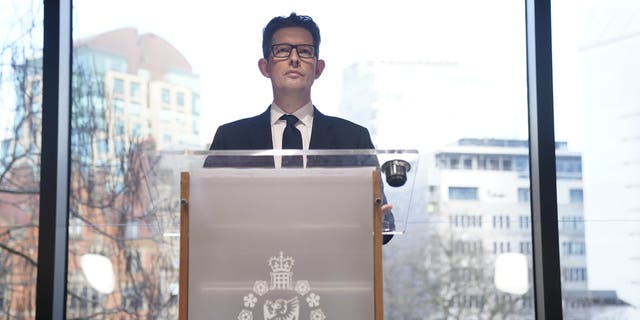MI5 failed in Ariana Grande concert bombing that killed 22 inquiry finds
The U.K.’s top intelligence agency MI5 failed to respond to key information that could have thwarted the 2017 suicide attack at an Ariana Grande concert in northwest England that killed 22 people, an investigation found Thursday.
The investigation, led by retired Judge John Saunders, found that one MI5 officer admitted the agency failed to quickly act after it received intelligence on the bomber, Salman Abedi.
The information on Abedi was deemed a possible national security threat, but the matter was not discussed fast enough among agency colleagues.
ARIANA GRANDE MANCHESTER CONCERT ATTACK: ANOTHER SICKENING TERROR SUCCESS
“Gathering covert intelligence is difficult, but had we managed to seize the slim chance we had, those impacted might not have experienced such appalling loss and trauma,” MI5 Director General Ken McCallum said in a statement.
McCallum said he was “profoundly sorry that MI5 did not prevent the attack.”

Abedi, 22, was killed after he detonated a backpack with explosives in the entrance of the Manchester Arena as thousands of concert goers were leaving the show, including children.

ARIANA GRANDE CONCERT ATTACK: MANCHESTER SUICIDE BOMBER’S ISIS-INSPIRED BROTHER SENTENCED TO 55 YEARS
The bombing, deemed an Islamic extremist attack, killed 22 people, including an 8-year-old, while injuring some 200 more.
The incident left many questioning how it was able to happen in the first place.
Saunders said he could not say for certain whether the attack could have been stopped, but noted that his investigation found “there was a realistic possibility that actionable intelligence could have been obtained, which might have led to action preventing the attack.”
The investigation apparently found that had MI5 acted on intelligence it had at the time, the agency could have stopped Abedi when he arrived at the Manchester airport from Libya four days prior to the attack.

Saunders was unable to provide additional information regarding his investigation due to national security concerns, though the admitted the findings could leave the family members of the victims wanting more.
The Associated Press and Reuters contributed to this report.
Read the full article Here


